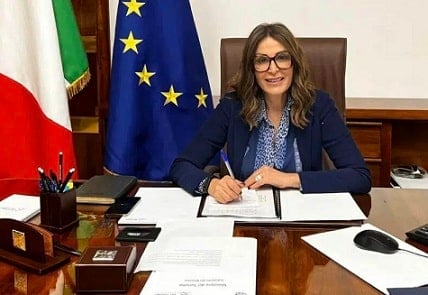The Italy Minister of Tourism, Daniela Santanchè, presented the Strategic Plan for Tourism 2023-2027 to insiders by videoconference.
The Italy Minister of Tourism, Daniela Santanchè, presented the Strategic Plan for Tourism 2023-2027 to insiders by video conference.
An audience of about 80 people – including organized tourism associations – represented the entire supply chain and contributed to the debate by expressing ideas and contributions for the plan to the minister.
“It is the first time that we find ourselves in a complete supply chain to have our say on a medium- and long-term plan which sees a generic growth of all tourism sectors,” commented the President of MAAVI (Autonomous Movement Italian Voyage Agencies), Enrica Montanucci. She continued: “Specifically, regarding organized tourism, we are proud to see some things in governance that we have always considered essential, such as the establishment of a fund for vouchers which allows companies to re-modulate their debt through the use of a negotiated rate from the Voucher Guarantee Fund, support for recapitalization, the provision of tax and/or social security interventions for companies in favor of the recruitment and qualification of the workforce, the extension of the duration of the tax credit for digitalization, the fight against illegal activity, and the definition of sustainability standards for intermediation and distribution in the tourism supply chain.”
The Strategic Plan deals with training, development, growth, and establishment of participatory and timed technical tables.
“It is a Plan that we like,” added Montanucci, “and which, if maintained in compliance with the times for urgent matters, makes the work of this ministry welcome.
“We’re here on paper for now. We appreciated sharing, asking for contributions, listening. It’s something we’ve never seen before. Hopefully, promises will be kept.”
This is “a first step” for Gianni Rebecchi, President of Assoviaggi, who said:
“Now we hope for the establishment of technical and institutional tables, for targeted interventions, as we had already requested as an association, on tax regulations and illegal practices, with the starting point of setting up a national database of regularly active operators on the model of that Infotrav which really becomes a tool for contrasting irregular activities.”
Rebecchi added: “Then we believe it is important to cite incoming travel agencies, because they are an important part of our tourism system; they manage significant flows of tourists. In Italy, we are talking about at least 2,000 companies for which, as I read in the text provided by MITUR [Italy Minister of Tourism], a real network and a series of supports for digitization are envisaged in order to be present in the Tourism Digital Hub the platform B2B and B2C on the Italian product.
“In general, it is a strategic plan which for the first time, enters into the merits of organized tourism and which finally identifies some operational aspects for which we await the adequate measures mentioned, which must be implemented as soon as possible.
“Finally, we appreciate the steps relating to incentives and tax breaks for the hiring of new professional figures, given the current shortage of young talent in travel agencies.”
The Pro Tempore President of FIAVET (Federazione Italiana Associazioni Imprese Viaggi E Turismo – Italian Federation of Travel and Tourism Business Associations), Giuseppe Ciminnisi, also intervened on the Plan, saying: “We greatly appreciate the guidelines of the Plan focused on sustainability and innovation, which are topics very dear to us. Of course, now the proposals made are all to be explored and declined with articulated and shared programming.”
This first draft of the Strategic Plan for Tourism is now under the careful examination of ASTOI Confindustria Viaggi – Associazione Tour Operator Italiani (Association of Tour Operators in Italy). “The Plan, of which we have received a copy, underlines the association of tour operators [and] contains the guidelines and methodology of the tourism strategies that the Ministry intends to develop over the next four years.”
Minister Santanchè, remarked ASTOI, during the last meeting, “underlined the importance of shared governance, which, therefore, involves all stakeholders, and invited the various trade associations to send in their contributions.
“Soon,” the Association anticipates, “we will send our note on the short- and medium-term policy objectives that have been identified in the Plan with reference to incoming organized tourism.”




